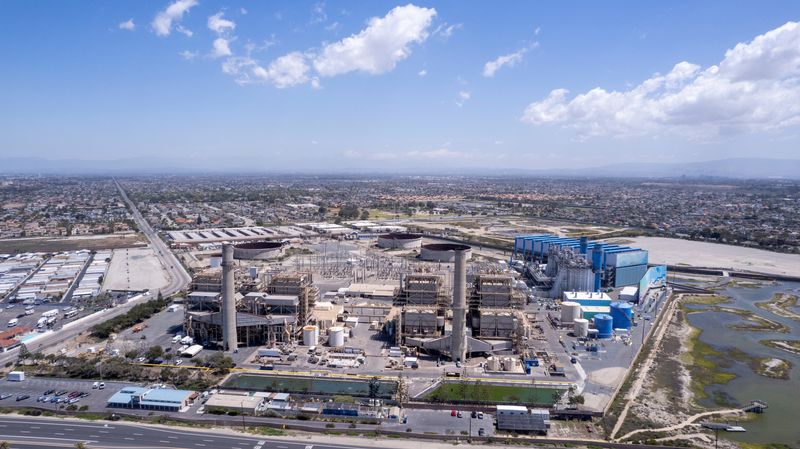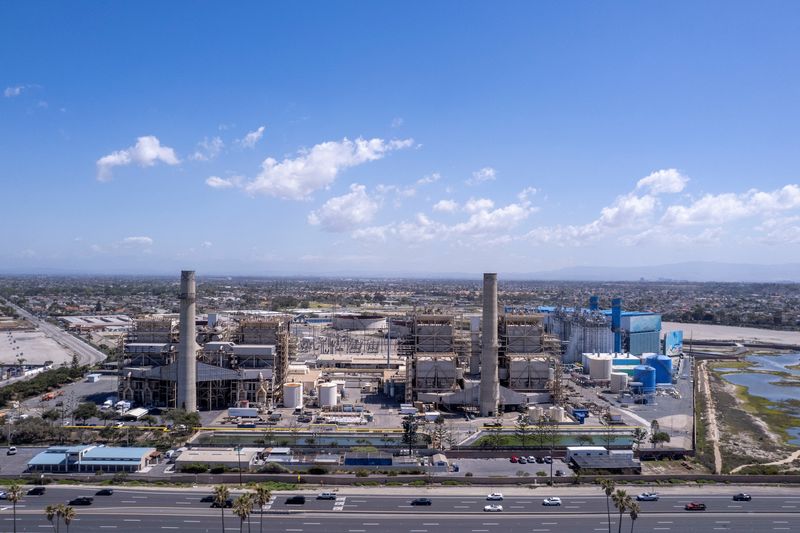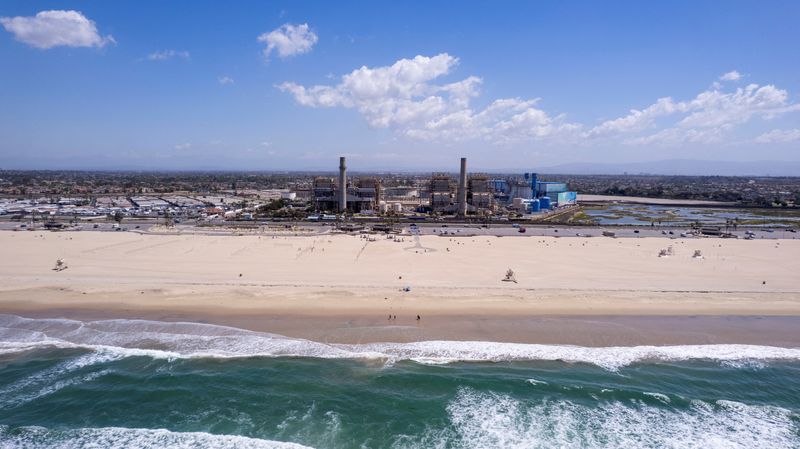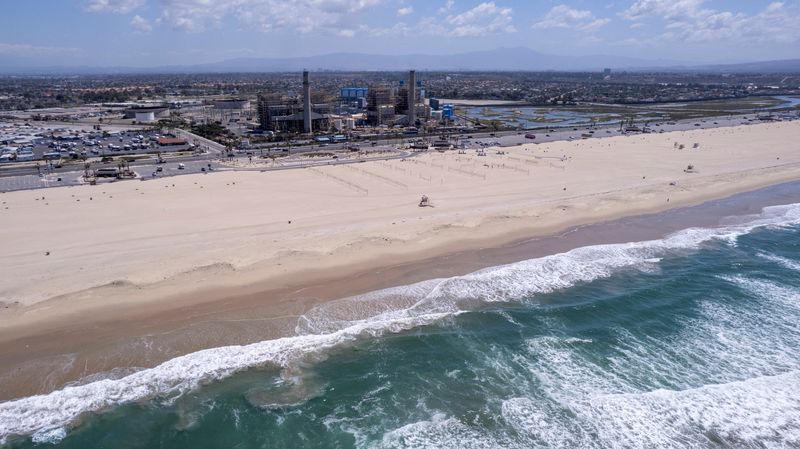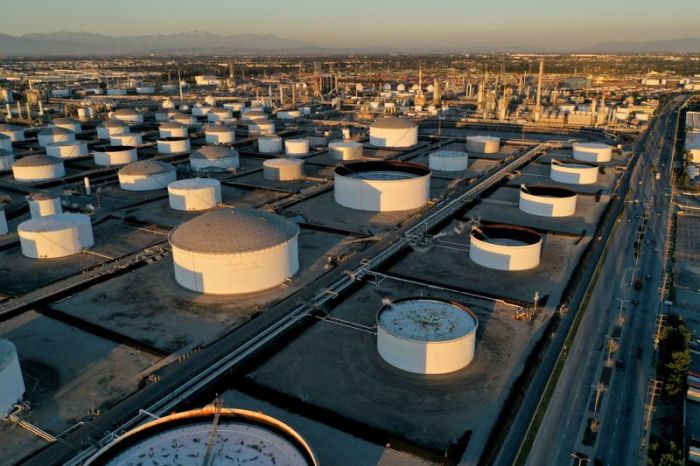COSTA MESA, Calif. (Reuters) -California regulators on Thursday rejected a $1.4 billion desalination plant on environmental grounds, dealing a setback to Governor Gavin Newsom, who had supported the project as a partial solution for the state’s sustained drought.
The California Coastal Commission voted 11-0 to reject the proposal by Poseidon Water, controlled by the infrastructure arm of Canada’s Brookfield Asset Management, to build the plant on a low-lying coastal site at Huntington Beach, near the town of Costa Mesa, about 30 miles (50 km) south of Los Angeles.
The plant was designed to convert Pacific Ocean water into 50 million gallons (189.3 million liters) of drinking water a day.
That is enough for 400,000 people, but the plant would use a process that staff experts at the commission said would devastate marine life and expose the plant to future risk of sea level rise while producing expensive water too costly for low-income consumers.
Environmentalists who have opposed the project for years burst into celebration after the vote in a Costa Mesa hotel conference room.
Representatives of Poseidon issued a statement expressing disappointment but made no comment on whether they would attempt to revive a project in which they have invested more than 20 years and $100 million.
Any new proposal for the site would face difficult odds or have to undergo significant redesign, so thorough was the staff report in detailing its flaws.
“It was a defining day for the for the Coastal Commission,” said Susan Jordan, a plant opponent and director of the California Coastal Protection Network. “When you have a project like this that is so damaging over the next half century, you really can’t allow that to move forward.”
The commission’s staff experts said the facility would destroy marine life in about 100 billion gallons of seawater per year, and the company’s ability to mitigate that damage with wildlife habitat restoration fell far short of state requirements.
“California continues to face a punishing drought, with no end in sight,” Poseidon said in a statement after the vote. “We firmly believe that this desalination project would have created a sustainable, drought-tolerant source of water.”
Environmentalists have long said desalination harms ocean life, costs too much money and energy, and the plant would soon be made obsolete by water recycling.
Though the vote was unanimous, with one member abstaining, commissioners said they would be willing to support other desalination projects.
“We have a dire need for more water, but we have to do it the right way,” said commissioner Effie Turnbull-Sanders, one of Newsom’s four political appointees on the commission.
Days after the staff recommendation for denial was published last month, Newsom spoke publicly in favor of the project, telling the editorial board of the Bay Area News Group: “We need more tools in the damn tool kit” to produce water for a thirsty state.
Newsom, a Democrat who is up for re-election this year with the drought on many Californians’ minds, disappointed environmental supporters by backing the project.
Commission Chair Donne Brownsey, also a Newsom appointee, said she did not expect to governor to dismiss the commissioners who defied him.
“He’s going to be disappointed. But I’m hoping he saw that we wanted to open the door to a path to success in the future for desalination,” Brownsey said.
The commission has approved 11 other desalination plants, including another one that Poseidon has operated down the coast in Carlsbad since 2015.
The Carlsbad desalination plant, the largest in the United States, turns ocean water to drinking water in 90 minutes, but it was built on more elevated geography and approved before statewide desalination regulations came into effect.
(Reporting by Daniel Trotta; Editing by Chris Reese, Robert Birsel)

